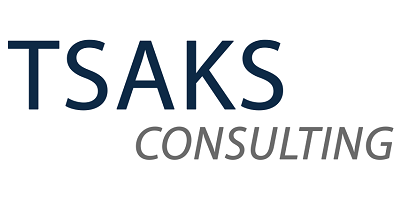The landscape of global construction is undergoing a significant shift. While large multinational firms have traditionally dominated the bidding process for major infrastructure projects, a new trend is emerging: the rise of international joint ventures (JVs) formed by medium-sized construction companies.
A Growing Trend:
According to recent a study, the number of JVs formed by medium-sized construction firms for international bids has increased by 40% in the past five years. This trend is being driven by several factors, including:
- Increased Project Complexity: Modern infrastructure projects are becoming increasingly complex, requiring a wider range of specialized skills and expertise. Medium-sized firms may lack the necessary in-house resources to meet all project requirements.
- Globalized Market: The construction market is becoming increasingly globalized, with projects often attracting bids from companies worldwide. JVs allow medium-sized firms to access new markets and compete for projects they might not be able to secure on their own.
- Financial Constraints: Large-scale projects often come with stringent financial requirements, such as minimum revenue thresholds or experience in similar projects. JVs allow medium-sized firms to pool resources and meet these financial benchmarks.
Advantages of International JVs:
Forming an international JV offers several potential advantages for medium-sized construction companies bidding on tenders:
- Enhanced Expertise and Resources: JVs combine the strengths of multiple partners, creating a pool of diverse skills and experience. This allows them to demonstrate a more comprehensive understanding of the project requirements during the bid process.
- Geographical Reach: A local JV partner can provide crucial insights into the project’s environment, regulations, and cultural nuances. This gives the JV a competitive edge over foreign firms unfamiliar with the local market.
- Improved Risk Management: Sharing risks across multiple partners can mitigate the financial and operational risks associated with large-scale projects.
- Increased Credibility: A well-established international JV can present a more credible image to project owners compared to a single medium-sized firm. This can be particularly advantageous when competing against larger multinational construction companies.
Challenges and Considerations:
While JVs offer significant advantages, they also come with potential challenges:
- Communication Challenges: Managing communication and collaboration across different cultures, languages, and time zones can be a hurdle. Clear communication protocols and strong leadership are essential to avoid misunderstandings and delays.
- Differing Business Practices: Partners from different countries may have varying business practices, legal requirements, and decision-making structures. Aligning these for successful collaboration can require careful planning and compromise.
- Internal Conflicts: Disagreements between partners regarding project approach, resource allocation, or profit sharing can arise. A well-defined JV agreement that outlines roles, responsibilities, and dispute resolution mechanisms is crucial to mitigate such conflicts.
- Integration Difficulties: Integrating different company systems and processes can be time-consuming and expensive. Investing in communication platforms and streamlined workflows can ease these difficulties.
Unlocking Tendering Opportunities:
Despite these challenges, international JVs and partnerships can unlock significant tendering opportunities for medium-sized construction companies. They are doing this through:
- Strategic Partner Selection: Choosing the right partners is critical. Look for companies with complementary skills and experience that align with the specific project requirements. A strong track record of successful collaborations and a shared vision for the project are key factors.
- JV Agreement with Clear Terms: A well-drafted joint venture agreement is essential. It should clearly outline individual roles, responsibilities, profit sharing mechanisms, communication protocols, and dispute resolution procedures.
- Tailored Bid and Tender Strategy: Developing a strong bid and tender strategy that leverages the JV’s combined strengths and addresses potential communication or integration roadblocks is crucial. Highlighting the JV’s combined expertise, local market knowledge, and risk mitigation strategies can make the bid more competitive.
Global Examples:
This trend toward international JVs is evident across various regions:
- Europe: A consortium of medium-sized construction firms from Germany, France, and Italy recently secured a major high-speed rail project tender in Eastern Europe by combining their expertise in rail infrastructure and experience with similar projects in the region.
- UK: A UK-based medium-sized construction firm partnered with a local company in the Middle East to win a bid for a large-scale renewable energy project. The JV leveraged the UK firm’s experience in sustainable construction and the local partner’s knowledge of regulations and permitting processes.
- Asia: In a bid for a major bridge construction project in Southeast Asia, two medium-sized construction companies from Japan and South Korea formed a JV. This partnership provided the project owner with access to advanced bridge construction technologies and expertise in navigating complex logistics and supply chain issues.
Bidding in the future
As the construction world becomes more globalised, there are increasing opportunities for small to medium firms and construction consultancies to win overseas bids and develop effective partnerships. This is rapidly becoming the norm and specialist firms across the globe need to look beyond the local market when looking to identify partners for large projects.






























